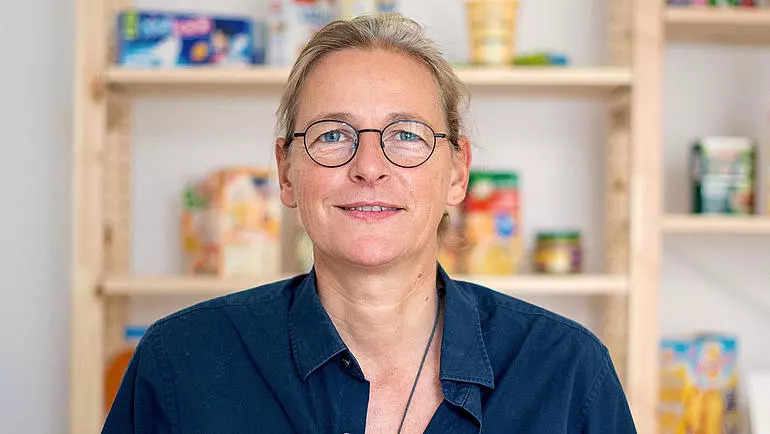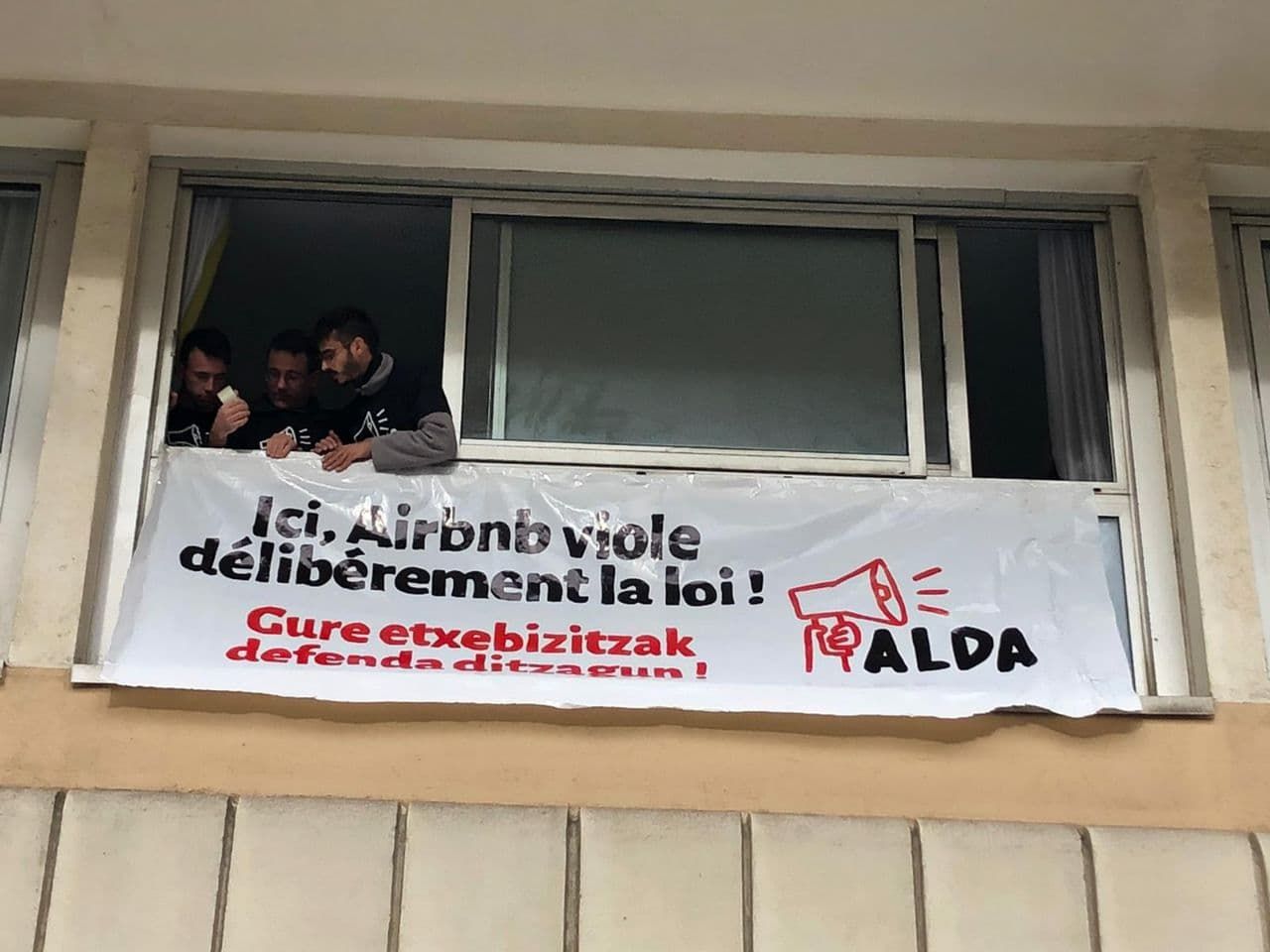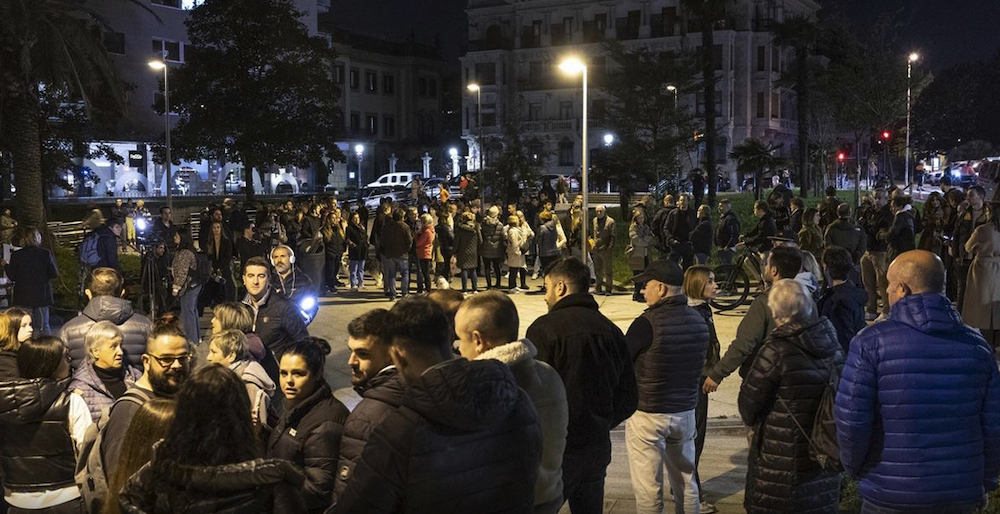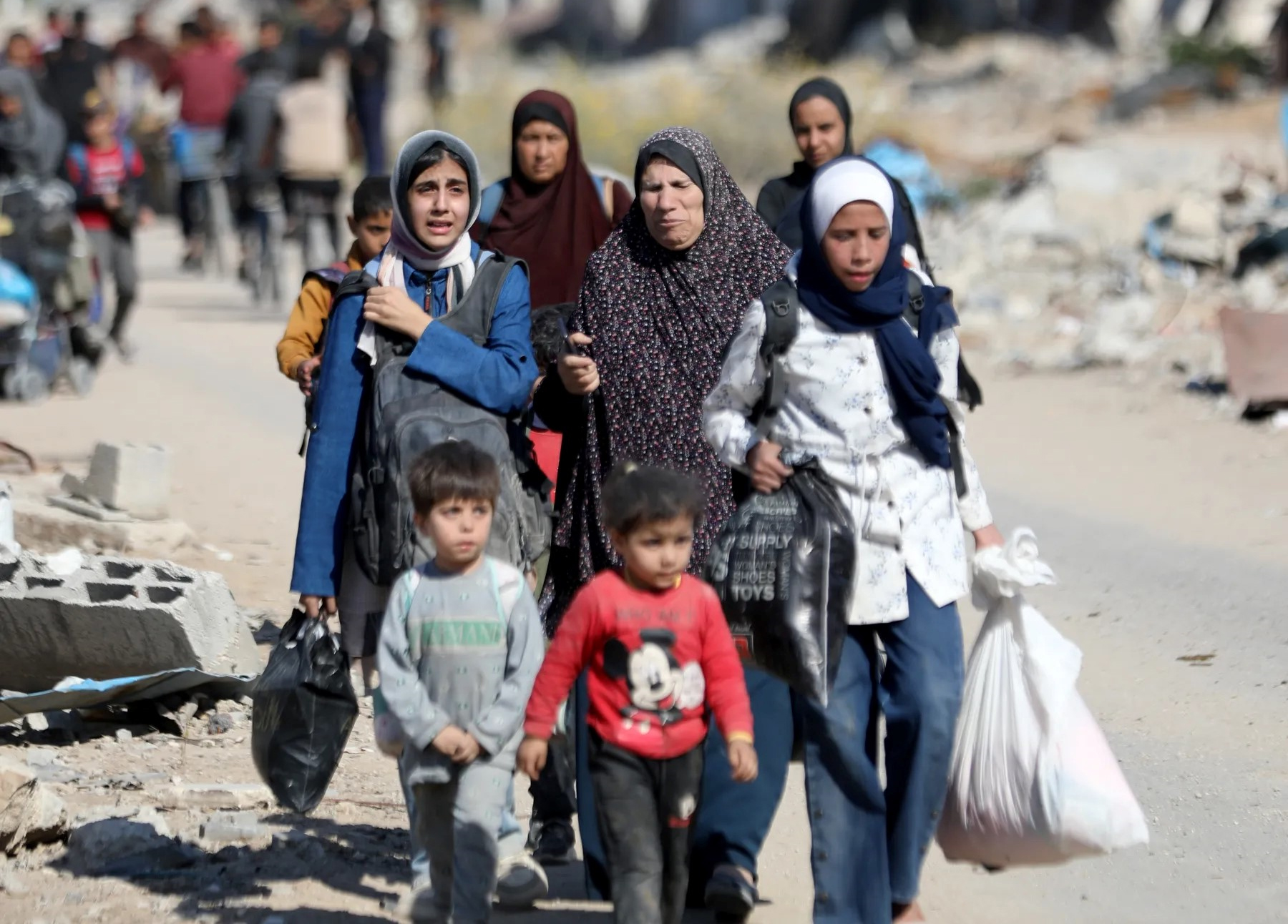"In public university, we have to respond to society, not the market."
- The reorganization of careers, the language policy of the university, the clashes with students, the intervention of private companies in financing… We have put on the table many themes to the rectors of the University of the Basque Country and the Public University of Navarra, Iñaki Goirizelaia and Alfonso Carlos.
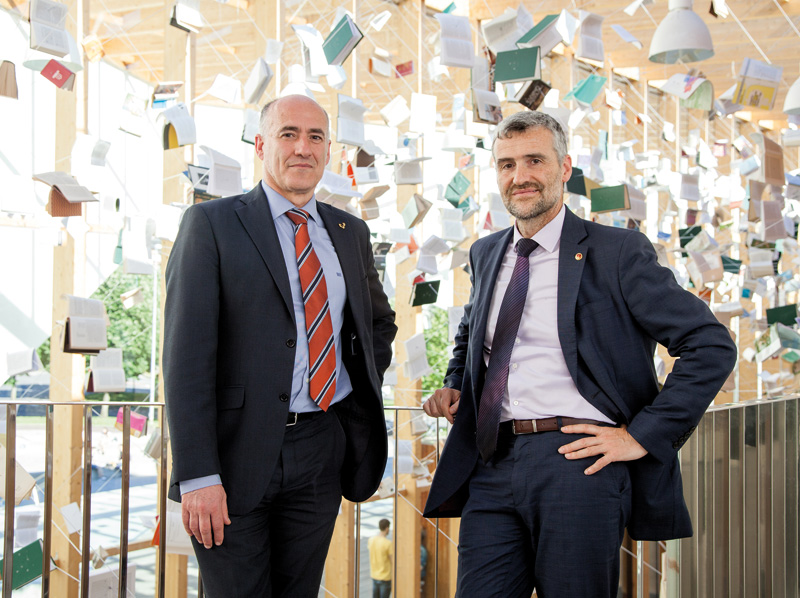
The UPV/EHU will reorganise the centres: The Bilbao Vocational Training Centre goes from 31 to 20 centres next year. You said that it will not affect the workforce, but some centres have been against it, because they fear that autonomy will be lost.
Iñaki Goirizelaia: In the face of such a process, there are always positive and critical positions, but thanks to the effort we have made throughout the process to communicate the objectives and benefits of this reorganisation, the votes have been clearly positive. It is true that when you go from three to one of these centers, one of them may think that they will lose their autonomy, but the truth is that, if nothing is done, the survival of this center was in question. Therefore, the question would be: if we did not do this, what would happen? It is not a question of going against the autonomy of the centers, but of making this university the reference, which requires all and all of us to work together and in a coordinated manner. If we want to be more and more active in research, we cannot act separately, we need to join forces. And people understand that if we want to have a future, it's better to have strong, referential centers.
But can the macro-centers of over 6,000 students influence the quality of education?
I. Goirizelaia: By no means. The organization of teaching has nothing to do with the size of the center; the degrees and the teaching of these degrees will be like so far, and the same, or even better, I would say, because the teachers will be able to carry out their academic activity in better conditions.
De Alfonso Carlos:
“Soon both systems will work together, grades 3 and 4 years. We must try to make the postgraduate master’s degree no more expensive than the degree; that is the critical factor”
Does this restructuring have to do with a possible reorganization of grades? I mean moving from the 4+1 system currently in the UPV/EHU (4-year grades, 1-year postgraduate) to a 3+2 system that is becoming a trend?
I. Goirizelaia: No, absolutely. We are committed to maintaining our current learning structure.
And at the UPNA, is it on the table to move from system 4+1 to 3+2 and thus give more weight to graduate students?
De Alfonso Carlos: I believe that the grades of 3 years will soon be raised and we will immerse ourselves in a model in which the two systems, grades of 3 and 4 years, will coexist. What cannot be offered is the same: Grades 4 have the advantage of lengthening the internship period or deepening other competences. Instead of opposing the one and the other, we must work on the improvement of master's degrees, as we have the challenge in master's degrees compared to other countries.
Can giving more weight to master's degrees and postgraduate degrees lead to the devaluation of degrees and to a more elitist education?
A. De Carlos: As long as we are clear about what we are offering in grades 3 and 4, there is no need for problems. Some grades adapt to 3 years and others to 4 years. And in many cases the degrees are enough, but for those who want to complete their studies with the master, the combination of master degree must be done well, and of course, we must try to make the master not more expensive than the degree, because that is the critical factor. Let it not be more expensive for anyone who wants to go all the way.
Iñaki Goirizelaia:
“The problem of the Basque in the UPV/EHU is not linked to teaching; I am concerned about the daily relationship, that of our professionals, but also that of the students who speak Spanish among them at all times”
I. Goirizelaia: Bets at the University can never go against the student's pocket. Studying in one format or another is not more expensive for students. On the other hand, can you lose prestige because the degree has a year less? There were three years ago the degrees of technical engineering, nursing, teaching... and no one doubted the prestige of these professionals. The contents, the academic offer, the resources are those that give prestige, but, I insist, to this day we do not find it interesting to go from 4 to 3 for the degrees we have.
In fact, you have republished the offer of qualifications. What criteria have you followed to suppress some grades and set others? Have technical-scientific careers been prioritized in relation to the Humanities or the Social Sciences, following the trend we have seen on numerous occasions?
I. Goirizelaia: As a public university, it is clear that the degrees we offer will not depend on the demand of certain socio-economic environments. It would be unacceptable if a country did not have a philosopher and, therefore, public university has to train philosophers. Profitability and market needs are not a criterion for us, but the needs of the country. Precisely, we have eliminated engineering degrees in order to reorganize this offer.
A. De Carlos: In our case, as a public university, we must respond to society, not to the market. Sometimes universities have a lot of pressure, because in the name of employability it seems that we only need to train students for certain jobs, and we understand it much more broadly, we want to train citizens. It is true that the engineering of the UPNA has a lot of weight and that is why, when we are thinking about new degrees, we are clear that we cannot ignore the social sciences and that, for example, we have to offer something in the arts and humanities, because today we do not offer anything in this field. It must be attractive, because whoever does not have a minimum demand makes no sense.
De Alfonso Carlos:
“In the protests there are sometimes groups that join groups of university students in a conjunctural and interested manner. On many occasions, young people release their indignation at university”
The UPNA offers only 20% of the subjects in Basque and a single course can be completed in this language: Teaching. How much would you like to improve the supply in Basque? Will it be made on the basis of student demand?
A. De Carlos: We do not know what the real demand is and, on the other hand, the supply in Basque is not easy, as many professors do not know Basque. We try, except for exceptions, to offer at least one tour in Basque in all the degrees so that the students have subjects in Basque in all the courses. Our objective is to be able to offer just over 20% of the credits in Basque.
As you say, many professors do not know Euskera at the UPNA, specifically 75.43%. Will measures be taken with the current faculty to solve it? And in future contracts will the knowledge of Euskera be taken into account?
A. De Carlos: The point is that the profile in Basque cannot be included in recruitment and, therefore, the only option is to make it easier for those who want to learn Basque. But it would be a voluntary option.
At the UPV/EHU there is also much to be improved on the Basque issue. The graduation speeches of medical students who cannot learn the entire Basque career are already famous.
I. Goirizelaia: In 30 years we have continued to take measures in favour of the Basque Country and spent more than 200,000 hours a year in Basque. In this town there is no one who has done so much for the normalization of the Basque country as the UPV/EHU. And by far. I am very proud of the policy that this university has pursued in relation to the Basque country. The degree in Medicine has special connotations and the preclinical subjects are 100% in Euskera, the problem is the hours to be devoted to the clinic. Are there things to improve? Yes, yes, but it is enough, in higher education, in research, in dissemination, in the production of books… we are the ones who have done the most in the Basque country. The problem of the Basque in the UPV/EHU is not a teaching problem, I am more concerned with the daily relationship, that of our professionals, but also that of the students: the same who ask for the degree in Basque always speak Spanish among them. I accept the criticisms they make from medicine, but I always tell them to look back, to see where we are going and to be able to value what we have today.
The last quarter of the year has been warm in both universities, although not in vain. At the UPNA, students have denounced that while making a peaceful protest the rector called the Foral Police and that they were injured in the clashes.
A. De Carlos: The protests have not been peaceful and the wounded have been two, with wounds of various kinds, which have been very mild. We had the Governing Board and they didn't let us in, so we decided to call the police. The police had abandoned them so that we could enter, and when the Interior Minister of Navarre had to give explanations in Parliament, all the parties recognized that police action had been as smooth as possible. On the other hand, the group of protests was small, did not represent the majority of students, and proof of this is that what they had of protest [reform that will turn some semester subjects into annual subjects] has been approved with a single vote against.
At the UPV/EHU, students have also had altercations with the Ertzaintza. The starting point was the Public University conducted by the students of San Mamés, who have denounced that they were evicted by agents of the Ertzaintza by force.
I. Goirizelaia: All of this comes from further away. In the last year we have had continuous enclosures in several faculties and the campus of Álava is the source of the incidents. The criticisms, whatever and all, are the university salsa, absolutely necessary. The organization of the Public University by the students, which is done without any kind of problem, is fundamental as a university, and I give all its value to the meeting, the organization, the discussion. It is up to us to protect it. But what happens in Vitoria is a genuine barbarism, a destructive barbarism, until the door of the vice-chancellor is burned. Is that peaceful?
Iñaki Goirizelaia:
“We don’t knock any company queue at the door, saying they want to put money. I would like to! Where is the problem while the university keeps the decision?”
But that happened later...
I. Goirizelaia: Yes, but the lights and activities of Vitoria are earlier. In San Mamés, the activities of the Public University were approved, but the director of the center did not accept the lockdown and decided to call the Ertzainas to get the students out. That angered the students and then the demonstration they made in Leioa was not at all peaceful: trying to enter the nursery, breaking the door with a maza, attacking the guards… I don’t think it is peaceful. And from that moment on, the Ertzaines intervened in the operation, which has been developed in Donostia-San Sebastián.
Do you see the students more outraged by the cuts and reforms? Have you talked a lot with the student movements?
A. De Carlos: We maintain an almost daily relationship with the legitimate representatives of the students: The Board of Pupils, the groups of students recognized by the University and the students represented in numerous bodies, including the higher body, the Governing Board. But sometimes there are groups, not always university ones, that come together in a cyclical and interested way with groups of university students, who are more difficult to know and control. Among young people, there is a discomfort that is sometimes freed up in universities. For example, the protests of the young people who have been made angry by the rise in rates have been devoured by the universities, because many times people do not know if the one who has raised the rates is the university, the autonomous government or that of Madrid.
I. Goirizelaia: At the UPV/EHU we have 50,000 students, and when there has been a significant incident, at most they have been around 200, I don't know if from there we can extrapolate the growing concern of the students. It is true that the students are organizing themselves before what is happening, raising days and demands, showing a critical attitude… and I believe that in recent years it is growing, as the students have been practically disappeared. I find this kind of activity interesting. And as for the relationship, we talk to everyone and we have the means to do so. Students are represented in official bodies, but beyond that we talk to anyone who asks us for an appointment.
In the financial sphere, it has complained that the Government of Navarre has allocated little money to the UPNA. With the new government, what funding models are they discussing?
A. De Carlos: In recent years, we have been greatly reduced in funding; proportionally, more so than in other areas of education. With the new government, we have not yet made any budget proposals, but we are agreeing on a multiannual funding model, because so far the budgets have been made without a specific criterion. The next step will be the determination of the amount, and we are maintaining a good relationship with the government; they are understanding the role that the university should play in Navarre society and we hope that the funding will improve.
What is the relationship between the UPV/EHU and the Basque Government in terms of funding?
I. Goirizelaia: From the institution we maintain a relationship with the institution. We have set the funding model, but the previous university plan was not complied with and we are having difficulty in meeting the current one.
You mentioned new ways of financing. Can the intervention of private companies in degrees, postgraduate programs and master's degrees imply a direct or indirect privatization of the university? Some have denounced that the university reform to be implemented from Europe has a tendency towards privatisation.
I. Goirizelaia: Ten years ago we were told the same thing, when the studies had to be adapted to Europe, and none of that has yet happened. At the UPV/EHU there is no company that decides the degree to be taught or that has acquired a master’s degree. I do not see it wrong for companies to cooperate economically with the university, provided that the content of the subjects and the responsibility for teaching is ours. Unfortunately, we don't knock at the door any company queue saying they want to put money. I would like to! Also being old students who want to support us, because it would give us more maturity than we have. As long as the decision is kept in our organs, as long as the autonomy of the university is maintained, where is the problem?
A. De Carlos: When it is said that there is a university’s privatisation policy from Europe, I find it curious, because Europe has no common policy, and thinking that universities are conspiring to privatise them makes no sense. The point is that in almost all countries, public funding for universities is being reduced. Public funding does not seem to be going to get much better, and we have to get used to being more imaginative and working differently, rather than receiving money from public administration: working with companies and alumni, sharing resources between universities… A university reform would also greatly help our effectiveness, because current excessive legislation creates many bureaucratic obstacles and a great workload for us.
What basis does Goirizelaia request for a University Law of the CAPV?
I. Goirizelaia: Although the Statute of Autonomy recognises the competences of the CAPV in education and research, the regulations from Madrid do not fail to hamper our action. The current management of teachers, for example, subject to state legislation, is inadequate and needs to be amended, we have no flexibility in order to be able to do the best job. In the governance of the university, there should be the possibility of other types of models, and the rector, for example, should have more decision. To date, the rector or rector has very little decision-making capacity. We have a Social Committee, we have to allow it to work this way; the salary policy of teachers does not meet the needs we have...
The UPNA, for its part, has just presented its Strategic Plan 2016-2019.
A. De Carlos: It is an approach on the three pillars of university, teaching, research and projection and transfer. In addition, the emphasis has been placed on internationalization, on the working class and on infrastructure and resources. We have already talked about the offer of new degrees and in research biomedicine will be our main bet. We also want to change the internal structure, academically and administratively, to make it more effective.
What is the relationship between the UPV/EHU and the UPNA?
I. Goirizelaia: We have a common trajectory in time and in many areas. Normally, in addition, these joint actions have not emerged from the rectors, but from the bottom to the bottom: research groups, collaboration among faculty… Many steps have been taken and these that arise from the bottom to the top are easier to help the rectorship than to make decisions from the top to the bottom. On the other hand, with a view to the future, it seems to me that the political situation we have is favourable to the development of institutional relations.
A. De Carlos: Yes, what works best is the bottom-up one and it happens to us with the UPV/EHU, as well as with the university of Zaragoza, which have been linked by proximity, in the field of research, a lot, even for having unified master's degrees. Institutionally, the will is at least that, the collaboration between the two.
Ostegun arratsean abiatu da Lurrama, Bidarteko Estian egin den mahai-inguru batekin. Bertan, Korsika eta Euskal Herriaren bilakaera instituzionala jorratu dute. Besteak beste, Peio Dufau diputatua eta Jean René Etxegarai, Euskal Hirigune Elkargoko lehendakaria, bertan... [+]
Kutixik Non
Festival: In the Casa de Cultura de Intxaurrondo, in San Sebastián.
When: 26 October.
---------------------------------------------
It is a musical initiative that emerged in Donostialdea and aims to "collectively confront the music industry that wants precarious,... [+]
Frantziako Estatuko diputatuak eta senatariak ados jarri dira. Orain arte, alokairu turistiko bat alokatzen zutenek etekinen %50 zergapetik kentzeko aukera zuten, urte osoko alokatzaileek, berriz, %30. Lege proposamenak biak hein berdinera ekarriko ditu, hots, %30era.
Gasteizko Errotako (Koroatze) auzoan izan diren manifestazio "anonimoek" kolokan jarri dute auzokoen arteko elkarbizitza. Azalera atera dituzte ere hauetan parte hartu duten partidu politiko batzuen eta beste kide batzuen izaera faxista eta arrazista.









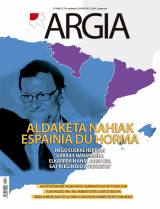


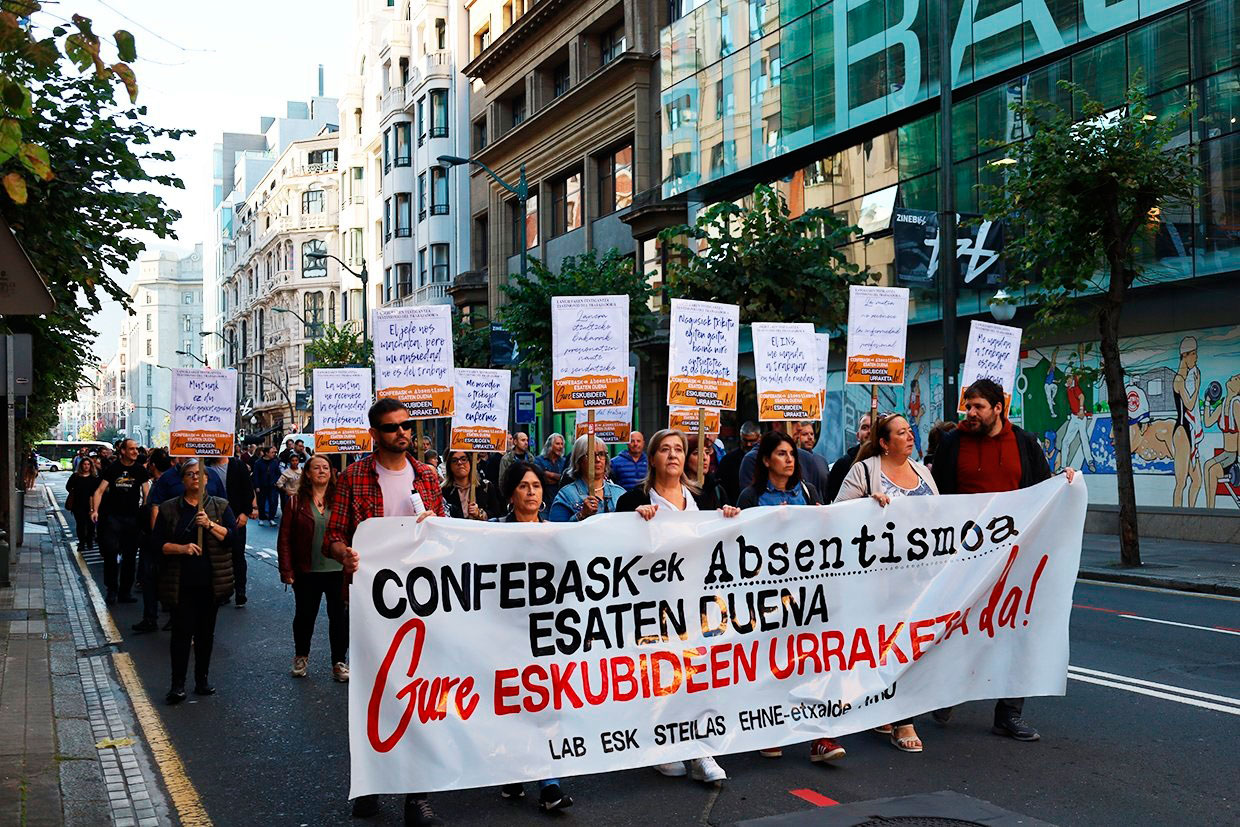
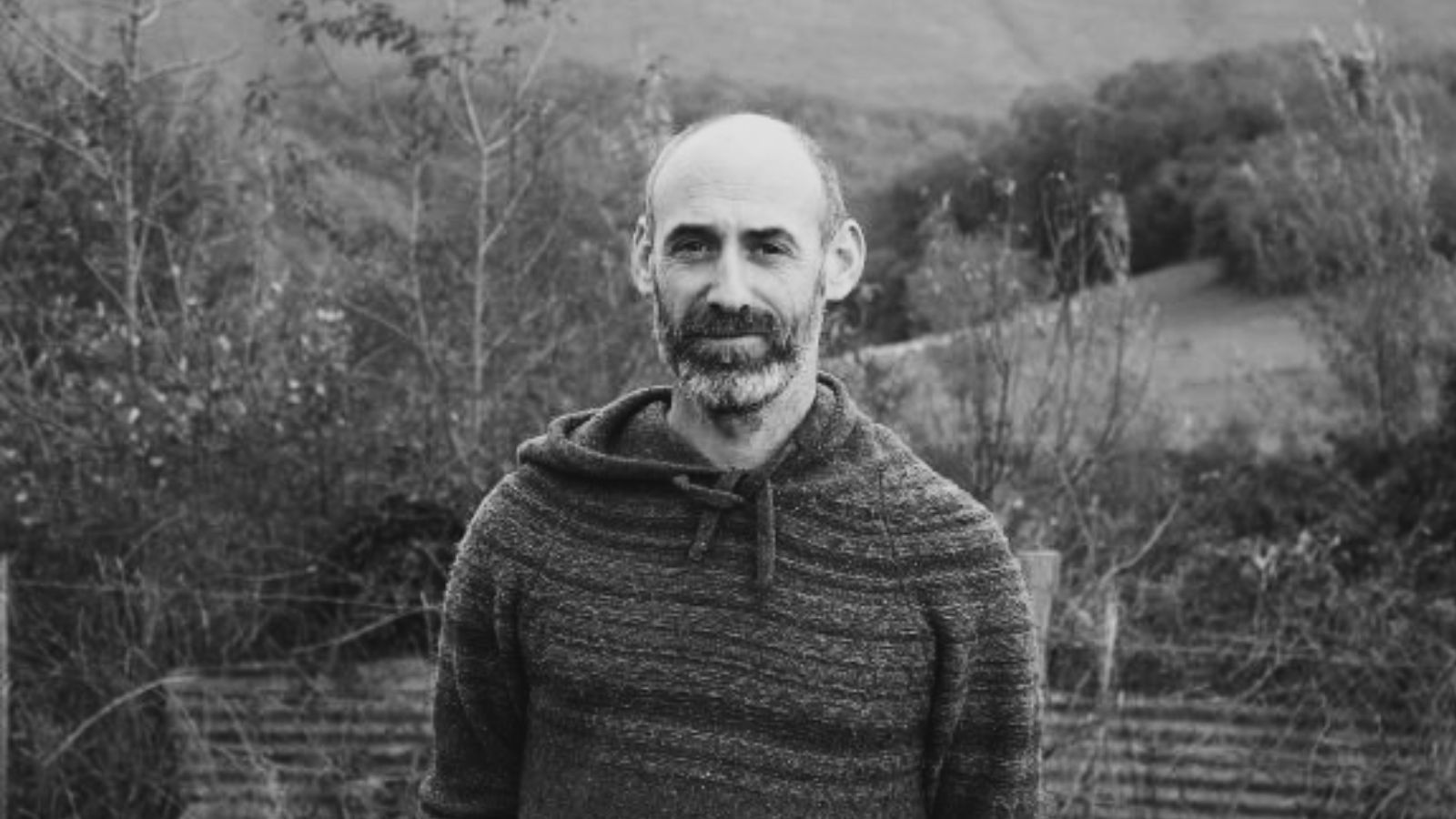

.jpeg)

